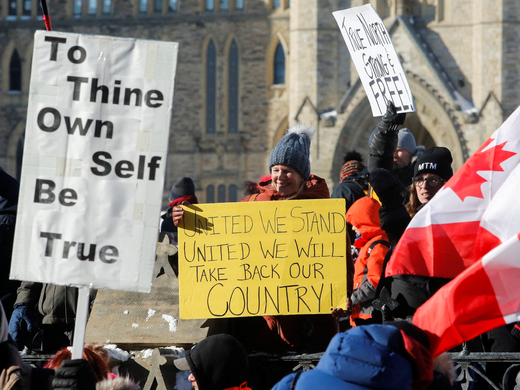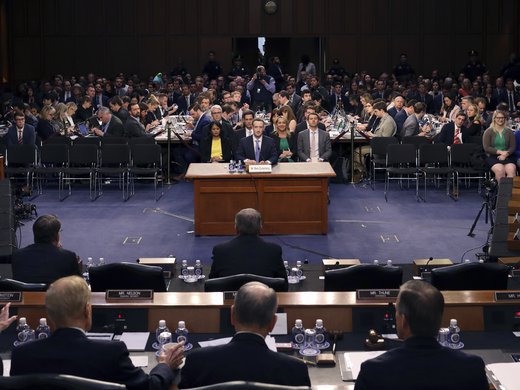On the eve of 2023, Western media outlets were filled with retrospective pieces detailing how democracies struck back against authoritarianism last year. That narrative isn’t wrong, but it’s also not universally accepted — especially in the Global South. Despite their present turmoil, autocratic regimes still possess immense resources. Anti-democratic movements retain profound influence, worldwide.
Indeed, as Western-centric globalization ebbs, giving way to a more fractious multi-polar order, sustained propaganda from populist and authoritarian actors is casting doubt among many about whether liberal democracy has the capacity to address major contemporary challenges. For Western nations and their citizens to prosper in this new reality of geopolitical ruptures and friend-shoring, they must revive the allure of democracy in places where it is faltering. Otherwise, democracy, as an institution, risks ceding credibility among developing countries. This is an enormous potential peril: these are regions that comprise more than two-thirds of the world’s population, and most of its young people.
It’s difficult to pinpoint precisely when the West, informally led by the Group of Seven nations, lost its ability to effectively promote democracy abroad. President George W. Bush’s global “war on terror,” the 2008 financial crisis, unkept promises of aid, deep domestic inequalities, and the mainstreaming of far-right extremist groups and reactionary nativist movements, embodied by Brexit and the presidency of Donald Trump, have all, in their own ways, sapped the moral authority of the mantle bearers of liberalism. Western leaders have also engendered blowback through misguided attempts to impose rushed democratic transitions on foreign populations, rather than sought to empower domestic stakeholders to build their own political systems.
Yet, for people everywhere, the desire for basic freedoms, human rights, functional institutions and the wish to have a say in how they are governed has not gone extinct. Meanwhile, the war in Ukraine has underscored, in graphic terms, the benefits of preserving a rules-based system of international affairs. Even so, the muted reaction to Western sanctions against Russia by states in the Global South has confirmed that the world’s geopolitical centre of gravity is shifting away from liberal democracies.
The reality is that, amid complex security, climate and economic challenges at home, ruling parties in low- and middle-income countries are becoming hardened against rhetorical appeals to uphold the somewhat abstract principles of democracy, no matter how important they may be. Instead, for many leaders and their supporters, invoking the failures and perceived hypocrisy of the West has become a reflexive tactic for blocking reforms that could speed their own national progress.
A new ideological offensive on behalf of liberal democracy may therefore be necessary. It would need to deploy all the technology and media tools available to tell better, more compelling stories — emphasizing the beneficial outcomes of democracy over its values — and provide foreign pro-democracy movements with more external support, while showing respect for non-alignment. Undertaking this is a daunting challenge to be sure; however, tackling it may increase the likelihood of bringing more countries into the now-weakened orbit of the Western world.
Revamped Western influence campaigns could define liberal democracies in opposition to autocracies by communicating the tangible benefits provided by democratic models of governance. Skeptical audiences in developing countries need to hear genuine, human stories about how, compared with other political systems, liberal democracy reduces corruption, enhances economic freedom, improves labour conditions, enables social mobility, increases gender equality and protects minorities’ rights, albeit all imperfectly. Engaging new immigrants and diaspora communities here could be key.
Content conveying these messages should pay careful attention to words and visuals in a way that harnesses the power of memes and reflects the audiences it is intended to reach. It should also be broadcast relentlessly across the social media landscape. The heightened adoption of smartphones in the Global South means these devices function as an evolved form of pavement radio, with people often congregating around a single screen to consume and discuss content together. It’s essential too that Western influence campaigns be overt and honest, without using deceptive tactics such as those France deployed in 2020 in disinformation campaigns in Africa, or by the US military when it engaged in backroom deals with Twitter to try to shape public opinions in the Middle East.
China, Russia, Iran and others have been collaborating on such offensives and succeeding at it for years. Moreover, each regime has promoted their bilateral actions and exported their views overseas in dozens of languages.
Short-form videos posted on YouTube and Instagram should be prioritized, combining commercial algorithms’ preferred-content format with the world’s fastest-growing platforms — aside from TikTok, given its suspected vulnerability to manipulation by Beijing. Text-based messaging could be done mostly through Twitter and Facebook. Thanks to Meta’s Free Basics initiative, the latter is the de facto internet for tens of millions of people in developing countries who can’t afford mobile data.
China, Russia, Iran and others have already been collaborating on such offensives and succeeding at it for years. Moreover, each regime has promoted their bilateral actions and exported their views overseas in dozens of languages through entities such as the China Global Television Network, RT (formerly Russia Today) and the Islamic Republic of Iran Broadcasting Corporation. Liberal democracies need to catch up by radically empowering their own publicly funded international broadcasters such as the BBC World Service, CBC/Radio-Canada, France 24, Voice of America, Deutsche Welle and others. Amplifying fact-based reporting abroad can also help dispel disinformation and the virulent false equivalencies pushed by authoritarian actors, and play the vital public service role that is increasingly absent in many countries due to the severe decline in press freedoms worldwide.
Some media purists will condemn increasing state support for news organizations. However, the causes of liberal democracy would arguably be better served by spending several billion dollars on beaming pro-democracy media into quasi-authoritarian states than forgoing the equivalent export revenue through coercive economic measures. After all, those measures tend to most harm those nations’ middle- and working-class people — the very citizens whose hearts and minds liberal democracies are trying to win over.
Overlooked analog technology can also help break through the heavily controlled or low-capacity digital ecosystems of autocracies and fill the information void in conflict zones. Radio Free Europe/Radio Liberty has for decades used shortwave radio to broadcast news and content to places where governments restrict access to information. As of early 2022, the organization was using this format to reach almost half the national radio audience in Taliban-controlled Afghanistan, weekly. In March 2022, the BBC World Service used shortwave broadcasting to send nightly news into Ukraine and parts of Russia during the early days of the full Russian invasion. Radio remains the most widely consumed form of media globally; UN estimates from 2021 suggest 37 percent of people worldwide still are unconnected to the internet, most of them in the developing world.
Unsurprisingly, there’s evidence democracy holds more appeal to the people of the Global South than it does to their leaders. A decade’s worth of surveys by independent polling company Afrobarometer have consistently shown a huge majority of Africa’s 1.4 billion people view democracy as their preferred form of government, over autocratic systems such as dictatorship, military rule or single-party rule.
Those results defy claims by international media and Western officials that there’s a supposed democratic backslide on the continent following a number of recent coups — takeovers that were products of problematic leadership, not citizens’ aversion to democracy. Similar surveys have generated headlines for indicating that less than half of Latin Americans think democracy is the best form of government, yet only around one in 10 respondents expressed firm support for authoritarianism. It’s a mistake to conflate popular anger at inept governments in the Global South with general contempt for democracy.
Liberal democracies can and should be more active in finding ways to overcome democratic deficits worldwide by supporting foreign civil society groups and engaging moral authority figures, such as educators and religious leaders. They have the means to do so. Communications technology allows for new forms of storytelling about the better future that liberal democracy promises — similar to the novel ways that Ukraine has rallied support to its cause. Another example comes from the YouTube channel set up by the political network of Russian dissident Aleksei Navalny, which works to counter the Kremlin’s fabrications.
Speaking about the future of the continuing women-led protests in Iran and their parallels to the startling wave of anti-lockdown civil unrest in China in early December, Iranian American author Neda Toloui-Semnani argues the West requires more boldness and imagination. “One of the things that protestors and demonstrators know is that first of all, ideas are contagious,” she says. “Hope is contagious, and democratic ideals are alluring. And people really respond when they are seen, when their struggles are noticed, when their efforts are applauded. And when their voices are amplified.”
But perhaps the most fundamental way for the West to cultivate democracy around the world is to treat sovereign states as individual entities rather than relegate non-aligned countries and their citizens to proxy status within great power rivalries, a tactic historically used by the United States. Each nation has its own unique history, needs, perspectives and agency. Illiberal foreign states have used individualized approaches to great effect to expand into Africa and elsewhere, zeroing in on the wishes and desires of domestic elites and developing partnerships with journalists and media organizations. Indeed, some observers predict China will increase its foreign outreach as a means to distract from its emerging internal weaknesses.
If the West is to regain influence in the Global South, it must resist the lures of protectionism and pivot away from framing every issue through the binary lens of an existential clash between autocracies versus democracies — no matter if that paradigm bears some semblance of truth. The focus must instead be on the legitimate role liberal democracies are playing in meeting local challenges in the developing world.
In a speech last October, Canada’s Deputy Prime Minister and Finance Minister Chrystia Freeland argued to an audience in Washington, DC, that “history shows that the West is not innocent of imperialism or transactional deals,” but that “the rules-based order we are seeking to strengthen is most valuable to the smaller, poorer countries who are most susceptible to coercion by larger and more hostile economies.” She added: “One of our most convincing arguments will be our own success.”
This is true. Despite liberal democracy’s messiness and evident flaws, it is still by far the most viable and resilient political system on offer. And it is the only system of governance that aspires to uphold human rights as defined by the Enlightenment. If Western nations are to thrive in the emerging political economy of the twenty-first century, they must quickly learn to better communicate how liberal values improve people’s lives.



